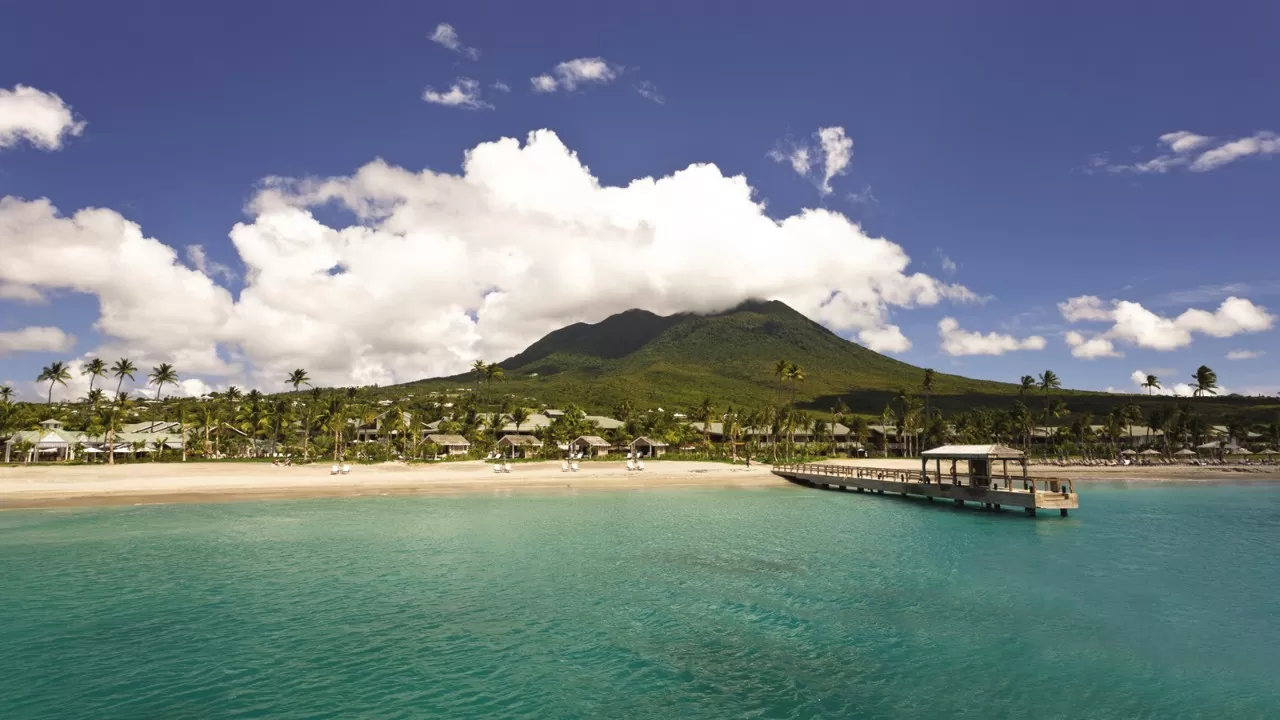Single applicants who obtain Caribbean citizenship through investment programs frequently need to add family members after their initial approval. These additions can include spouses acquired through marriage, children born after citizenship, or parents who were not included in the original application. Each Caribbean jurisdiction has established specific procedures, fees, and timeframes for these post-approval additions.
Understanding the specific mechanisms, costs, and timing requirements for adding dependents after approval will maximize your citizenship investment’s long-term value. The costs, processing times, and eligibility criteria vary significantly between countries, with some offering streamlined processes for certain family members while others require full investment contributions regardless of timing.
Legal Framework for Post-Approval Dependent Additions
Caribbean citizenship programs distinguish between two primary pathways for adding dependents after initial approval: citizenship by investment routes and citizenship by descent provisions. These pathways have different requirements, costs, and processing procedures that affect which option is available for specific family members.
Citizenship by investment routes typically require new dependents to meet similar investment thresholds and due diligence requirements as primary applicants. This approach applies most commonly to spouses and, in some cases, children beyond certain age limits or time restrictions.
Citizenship by descent provisions offer simplified procedures for children of naturalized citizens, often with reduced fees and documentation requirements. These pathways recognize that children born to citizens should have access to citizenship through their parents’ status rather than requiring separate investment contributions.
Requirements for Adding Spouses
Spousal additions after citizenship approval generally require full compliance with citizenship by investment procedures. The new spouse must undergo comprehensive due diligence, including background checks, financial verification, and character assessments. Investment requirements typically match those for primary applicants, including contributions to national development funds or qualifying real estate purchases.
The process begins with submitting proof of marriage, including certified marriage certificates and, in some jurisdictions, additional documentation to verify the relationship’s legitimacy. Due diligence procedures examine the spouse’s financial history, criminal background, and professional credentials through the same processes applied to primary applicants.
Investment obligations for spousal additions vary by jurisdiction. Some countries offer slight reductions for spousal additions within specific timeframes after initial approval, while others maintain standard investment requirements regardless of timing.
Procedures for Adding Children
Children can be added to Caribbean citizenship programs through either citizenship by investment or citizenship by descent pathways, depending on their age, the timing of their birth, and the specific country’s regulations. Children born after the parent’s naturalization often qualify for citizenship by descent, which involves simplified procedures and reduced costs.
The documentation requirements for adding children include birth certificates, proof of parentage, and, in some cases, custody documentation for divorced parents. Due diligence requirements vary by age, with most jurisdictions requiring background checks for dependents over 12 or 16 years old. The main applicant may have to undergo due diligence once more.
Timing restrictions apply in several jurisdictions, with some countries requiring child additions within specific windows after initial approval. Missing these deadlines can result in higher costs or require pursuing citizenship by descent routes with different procedures and requirements.
Adding Parents and Other Dependents
Parents and other dependent family members typically must complete full citizenship by investment procedures, including comprehensive due diligence. Age restrictions and additional requirements often apply to older applicants, including mandatory medical examinations and insurance coverage.
The process typically requires extensive documentation that proves the parent-child relationship, financial capacity, and health status. Some jurisdictions require adult children to serve as sponsors, accepting financial responsibility for their parents’ welfare and potential liabilities.
Antigua and Barbuda Post-Approval Procedures
Antigua and Barbuda permits adding children under 17 years old through its citizenship by investment program with age-based fee structures. Children under five years require US$10,000 in fees, while those between six and 17 years cost US$20,000. Additional due diligence fees of US$2,000 apply for dependents over 12 years old.
The country’s citizenship by descent policy allows children born after October 31, 1981, to obtain citizenship if at least one parent was an Antiguan citizen at birth. This pathway typically applies when children are born after the parent’s naturalization and offers streamlined processing compared to full citizenship by investment applications.
Spousal additions follow standard citizenship by investment procedures without preferential treatment or reduced requirements. The full due diligence and investment obligations apply to spouses regardless of timing relative to the primary applicant’s approval.
Dominica Addition Requirements
Dominica offers child additions through its citizenship by descent framework for US$2,000 in administrative fees, provided applications are submitted before the child turns five years old. This process falls under citizenship by descent legislation rather than citizenship by investment rules, resulting in simplified procedures and reduced costs.
Children born on Dominican territory automatically receive citizenship regardless of parents’ nationality. Additionally, children obtain citizenship if at least one parent holds Dominican citizenship, providing flexibility for families with children born abroad after naturalization.
Spousal additions require full citizenship by investment procedures without preferential pathways or reduced requirements. The standard investment contributions and due diligence processes apply to spouses seeking citizenship after the primary applicant’s approval.
Grenada Timeline-Based Procedures
Grenada’s approach to post-approval additions depends on timing relative to initial approval. Children can be added within the first 12 months through the citizenship by investment program for US$25,000. After this period, families must pursue citizenship by descent routes, which cost approximately $10,000 including legal fees and administrative charges.
The citizenship by descent pathway involves lengthier processing times and increased documentation requirements compared to the immediate citizenship by investment route. Families must evaluate the trade-offs between higher immediate costs and delayed lower costs when planning child additions.
The 12-month window creates a clear decision point for families anticipating children shortly after citizenship approval. Careful timing coordination proves essential to optimize costs and processing procedures.
Saint Kitts and Nevis Addition Framework
Saint Kitts and Nevis requires US$10,000 for children born after application submission but before Certificate of Registration issuance.
The country maintains citizenship by descent provisions allowing children and grandchildren of citizens to apply for naturalization if one parent is a naturalized citizen and they did not apply during their parents’ naturalization process. This provides additional flexibility for multi-generational citizenship planning.
The fee structure varies based on precise timing relative to application milestones, requiring careful coordination between citizenship advisors and families to optimize costs and procedures.
Case Study: What Happens if I Want a Destination Wedding in St. Kitts and Nevis?
(Names used are fictional for illustrative purposes)
In 2024, Mark Lewis, a recent St. Kitts and Nevis citizen through the Sustainable Island State Contribution route, decided to combine romance with logistics: hosting a destination wedding on the island and then adding his new spouse, Anna Mitchell, to his citizenship file. The process unfolded in two clear stages: first, the legal marriage in St. Kitts and Nevis, and second, the formal spousal addition application under the Citizenship by Investment Unit.
Timeline
- Day 1: Mark and Anna meet with a local marriage officer to complete the Marriage Licence Application Form and the required sworn affidavits of marital status. They submit their passports, birth certificates, Mark’s citizenship certificate. If it is relevant, applicant will also need a certified copies of divorce or death certificates in case of previous marriages.
- Day 2–3: The application package is delivered to the Government Department for processing. The marriage license is issued within 2–3 days, along with the return of original documents.
- Day 4: The couple holds their wedding ceremony at a scenic beach venue, attended by two witnesses. They sign a temporary marriage certificate, which is later deposited with the Marriage Registry.
- Day 5–7: The official marriage certificate is issued by the Government’s Marriage Registry.
- Following Weeks: Mark’s legal counsel submits the spousal addition application to the CBI Unit, including the marriage certificate, due diligence forms, and investment payment. Anna undergoes the same due diligence process as primary applicants.
Key Takeaway:
For couples marrying after citizenship approval, the local marriage process is more than just a romantic getaway, it’s a crucial first step in making a spouse eligible for citizenship. While the marriage license stage can be completed in under a week, the due diligence and investment phases that follow will extend the full process to several months.
Saint Lucia Time-Limited Additions
Saint Lucia permits adding newborn children for US$5,000 after receiving citizenship approval, but restricts this process to one year from naturalization. Children born after this window cannot be added through the simplified process and must pursue citizenship by descent routes evaluated on a case-by-case basis.
The citizenship by descent provisions limit additions to one generation, meaning only direct children of naturalized citizens can obtain citizenship through descent. This restriction affects families planning multiple generations of citizenship through a single investment.
The one-year deadline creates pressure for families to plan carefully around this timeframe, as missing it significantly complicates the addition process and may result in higher costs or application denial.
Vanuatu Investment-Only Framework
Vanuatu does not offer citizenship by descent pathways for citizenship by investment holders, requiring all family additions to proceed through the full investment framework. Adding a child under 18 requires US$19,250 in additional investment, while dependents between 18 and 21 require US$44,250.
Additional fees include approximately US$500 for passports and applicable due diligence charges for each person. The absence of descent pathways means families must carefully consider their complete family structure during initial application planning.
This standardized approach creates cost predictability but limits flexibility for families anticipating post-approval additions. The higher costs and uniform procedures across all family member categories make Vanuatu less accommodating for gradual family additions.
Nauru Current Program Framework
Nauru operates an active citizenship by investment program based on its previous framework. As a relatively new program, detailed regulations for post-approval additions remain limited, though the government has indicated that future dependents can be added to existing citizenship applications.
The program requires US$105,000 for single applicants, US$110,000 for families up to three members, and US$115,000 for families of four or more. Due diligence fees apply at US$10,000 for main applicants and US$7,500 for each dependent over 16 years old, with passport fees of US$500 per person.
Unlike Caribbean jurisdictions, Nauru does not offer citizenship by descent pathways for citizenship by investment holders. All family additions must proceed through the investment framework, requiring dependents to be declared in the initial application or pursue separate investment contributions for post-approval additions.
The program’s recent establishment means specific procedures, fees, and timing requirements for adding spouses, children, or parents after initial approval have not been fully detailed. However, government statements confirm that mechanisms for future dependent additions will be available, likely following the program’s existing investment-based structure rather than simplified descent pathways.
Important Considerations
The decision between applying as a single applicant or anticipating future family additions depends on specific timelines, financial capacity, and chosen jurisdiction’s framework. Marriage timelines within two years may justify delaying applications to access family rates, while urgent citizenship needs may warrant proceeding individually despite higher subsequent costs.
Parenthood timing relative to citizenship approval significantly impacts costs and procedures. Having citizenship before children are born opens descent pathways that can save tens of thousands of dollars compared to full citizenship by investment applications.
Jurisdictional selection becomes critical when considering future additions. Countries with flexible descent pathways and reasonable timing windows offer advantages for families anticipating post-approval additions, while others impose restrictions that may increase costs or limit options.
Post-approval additions require expertise in multiple legal frameworks, timing considerations, and careful planning across different jurisdictions. The complexity of these processes and the significant financial implications make professional guidance essential for optimal outcomes.
At NTL Trust, we provide strategic advice for single applicants planning to expand their citizenship portfolios as their families grow. Contact us today to book a comprehensive consultation with our experts.















